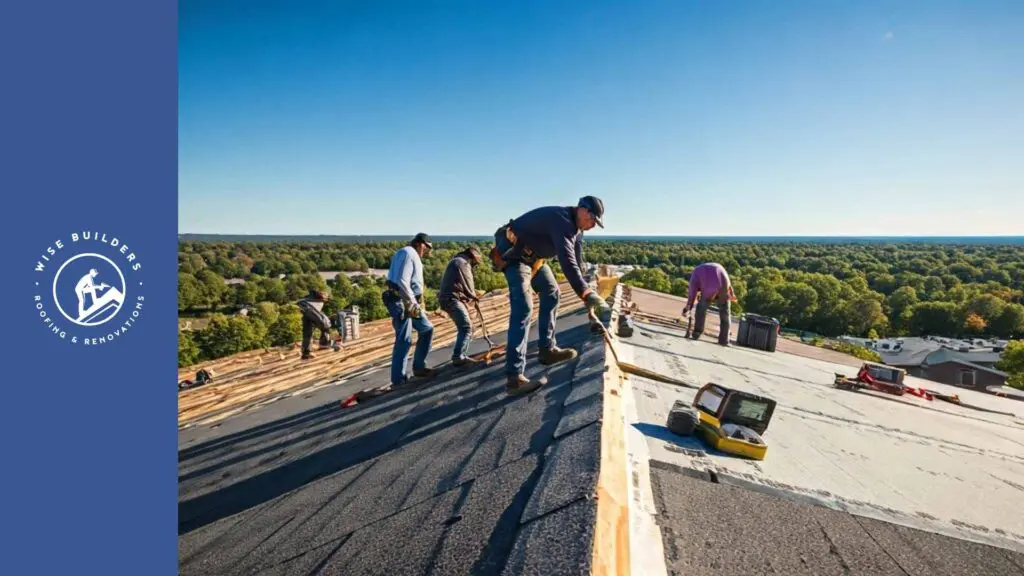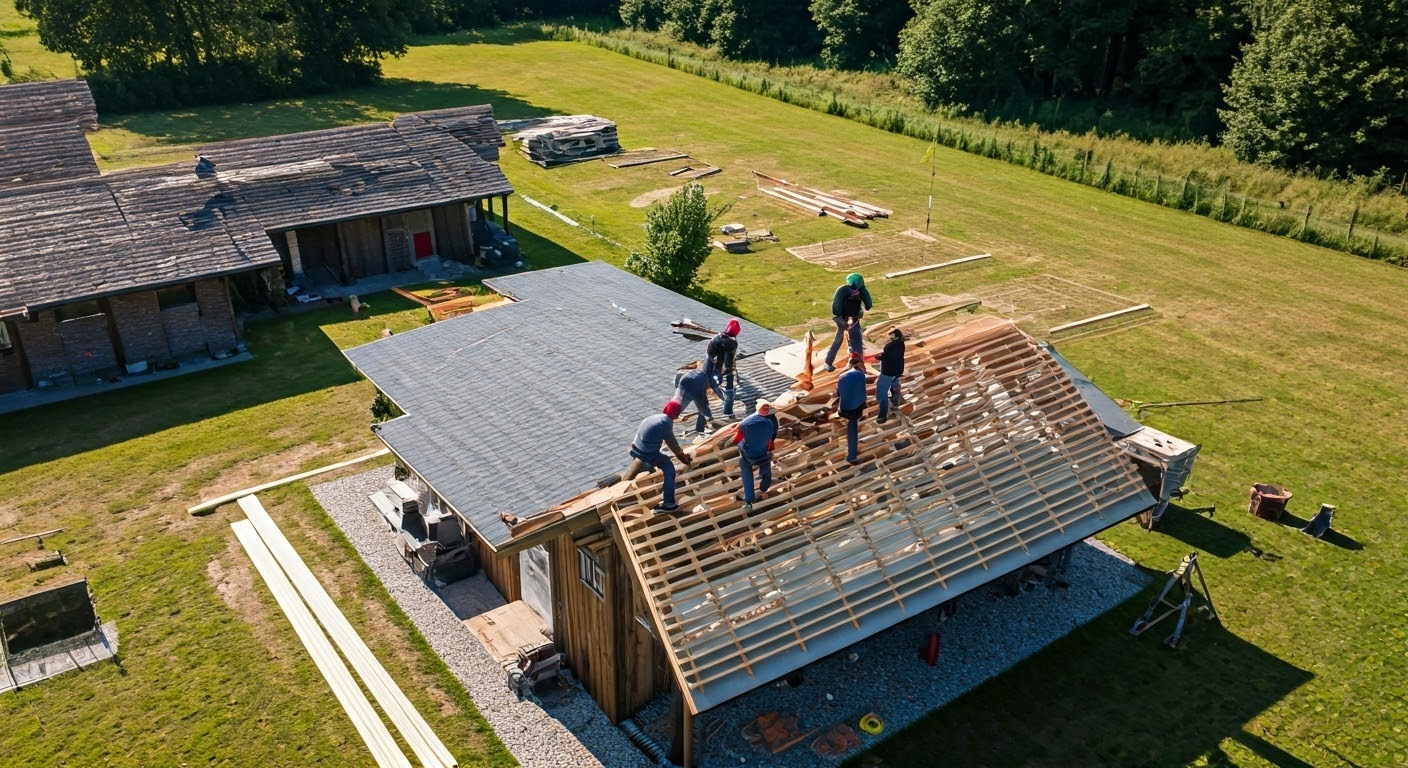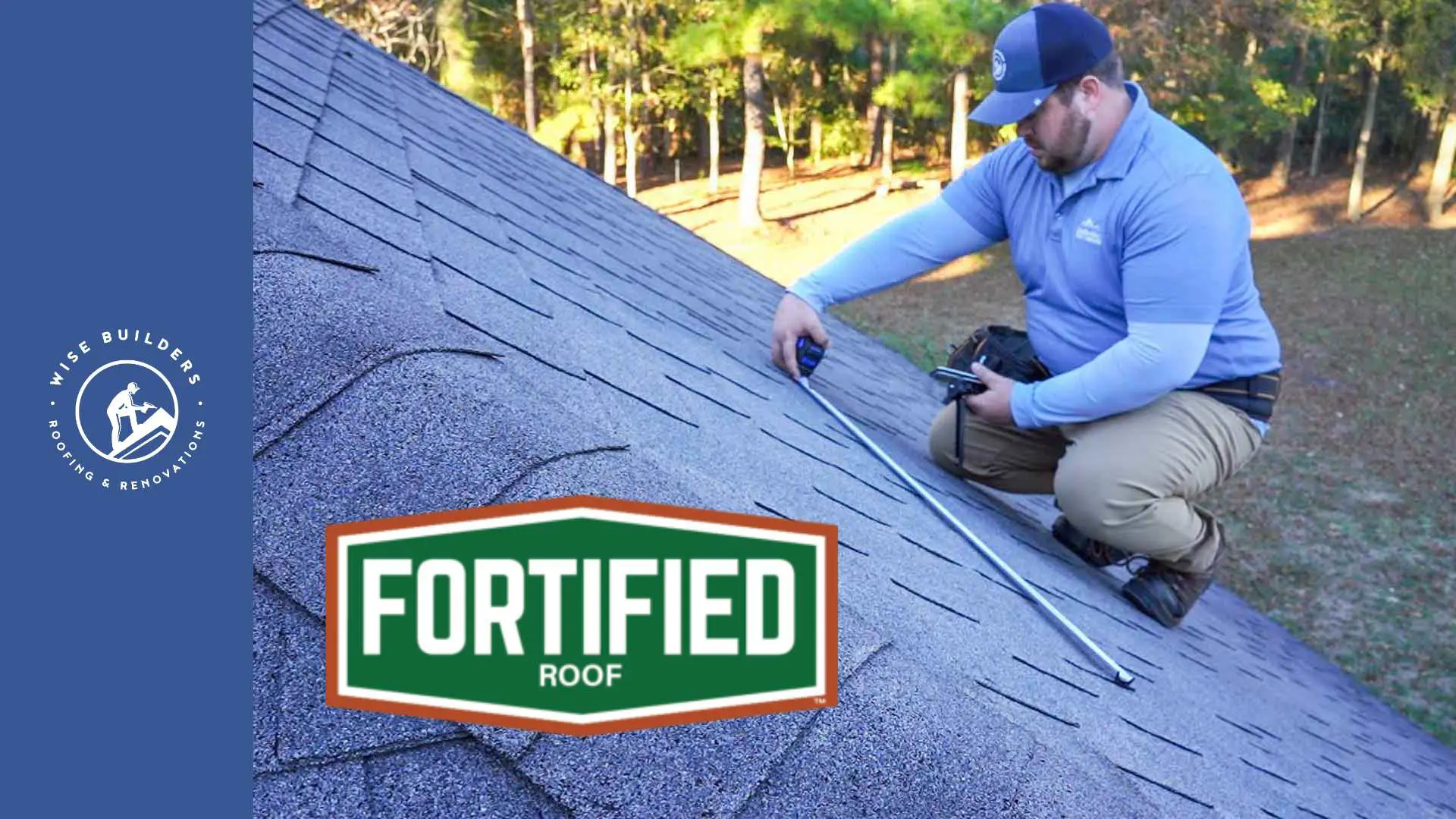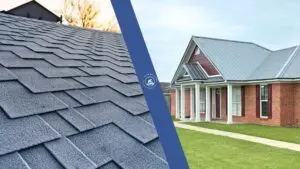
Key Highlights
- Obtaining a roofing license in Alabama is essential for contractors who want to work on projects valued at $2,500 or more.
- The Home Builders Licensure Board (HBLB) offers two main types of roofing licenses: Residential Home Builders Unlimited and Residential Roofer.
- While there aren’t any formal education requirements, applicants must demonstrate relevant experience and pass a licensing exam.
- Costs associated with obtaining a license include application fees, exam fees, and potential training expenses.
- Licensed roofers in Alabama enjoy benefits like increased job opportunities, legal protection, and higher earning potential compared to unlicensed individuals.
Introduction
Interested in pursuing a career in Alabama roofing? Obtaining an Alabama business license as a roofing contractor is a crucial step for contractors in Alabama, ensuring they comply with the state’s license requirements, including a current financial statement. This comprehensive guide covers all you need to know about Alabama roofing, from understanding the different types of licenses to navigating the application process and exploring the benefits of becoming a licensed professional in the state.
Understanding Alabama Roofing License Requirements

In Alabama, securing the appropriate roofing state license is not merely a suggestion but a legal necessity for any contractor aiming to undertake projects valued at $2,500 or more, unlike in North Dakota where the threshold is $4,000. This stipulation underscores the state’s commitment to upholding industry standards and safeguarding consumers from potentially unqualified practitioners.
The body responsible for overseeing and issuing these licenses is the Home Builders Licensure Board (HBLB). While the HBLB doesn’t mandate specific educational qualifications, such as a degree or diploma, it does require applicants to demonstrate practical experience in the field.
Overview of Licensing for Residential and Commercial Roofing
Those interested in obtaining a roofing contractor license in Alabama should first distinguish between the two primary categories: residential roofing and commercial roofing, which may require a law exam and a business license. Each has its own set of requirements and regulations, determined by the scale and nature of the projects involved.
For residential roofing, which involves work on private homes and dwellings, aspiring contractors typically pursue a Residential Roofer license. This license allows individuals to perform various roofing tasks on residential structures, from installations and repairs to maintenance.
Commercial roofing contractors, on the other hand, focus on larger-scale projects, such as those involving industrial buildings, apartment complexes, or commercial properties. These projects necessitate a different set of skills and expertise due to their complexity and specific building codes. In Alabama, contractors handling such projects usually fall under a broader “General Contractor” license with a specialization in roofing.
Key Legalities for Roofing in Alabama
Navigating the legal aspects of operating as a licensed roofing contractor in Alabama is essential to ensure compliance and mitigate potential risks. This involves fulfilling specific requirements related to insurance and bonding, safeguards that protect both the contractor and their clients.
One such requirement is obtaining proof of general liability insurance. This type of insurance offers financial protection to the contractor in the event of property damage or bodily injury to third parties arising from their work operations.
Furthermore, Alabama mandates that roofing contractors acquire a surety bond, serving as a financial guarantee that the contractor will fulfill the obligations outlined in their contractual agreements. The bond acts as a safety net for clients by ensuring project completion according to the agreed terms and quality standards.
Types of Roofing Licenses Available in Alabama

When it comes to obtaining your roofing license, it’s essential to be aware of the distinctions between the license types. Primarily, Alabama provides two avenues for those seeking to legally engage in roofing: the Residential Home Builders Unlimited license and the Residential Roofer license.
The Residential Home Builders Unlimited license grants individuals the authority to undertake a wider range of residential construction projects, encompassing roofing work. This implies that holders of this license need not secure an additional Residential Roofer license. Conversely, those with a Limited Home Builders License must acquire the specialized Residential Roofer license to perform roofing work.
Distinctions Between Residential and Commercial Licenses
Understanding the differences between a residential roofer license and a commercial contractor license is crucial for anyone looking to work legally in Alabama’s roofing industry. Choosing the wrong license can limit your business opportunities and even lead to legal issues down the line.
A residential roofer license, as the name suggests, permits an individual or a business to carry out roofing projects exclusively on residential properties. This includes single-family homes, duplexes, townhouses, and similar dwellings. The scope of this license restricts the contractor from engaging in commercial work.
Conversely, commercial work, which encompasses projects like office buildings, retail spaces, or industrial facilities, generally requires a general contractor license with a specialization in roofing. The requirements for obtaining a general contractor license are typically more stringent than those for a residential roofer license, reflecting the increased complexity and potential risks associated with larger-scale commercial projects.
Special Licenses for Roofing Contractors
In addition to the general Residential Home Builders Unlimited and Residential Roofer licenses, Alabama offers more specialized licenses within the roofing sector. One example is the sheet metal contractor license, catering specifically to contractors who primarily work with sheet metal materials for roofing and other construction applications.
Furthermore, within certain license categories, there might be distinctions between “unlimited” and “limited” licenses. An unlimited license typically allows contractors to undertake projects of any size or value, granting them greater flexibility in the scope of their work. Conversely, a limited license may impose restrictions on the maximum project value a contractor can handle.
Step-by-Step Guide to Obtaining a Roofing License in Alabama

Once you’ve gathered the necessary experience to embark on your roofing career in Alabama, acquiring your Residential Roofer license involves a structured process that may include consulting with the Alabama Secretary of State regarding your Certificate of Existence. Familiarity with these steps ensures a smoother and more efficient application experience.
Begin by identifying your Designated Qualifying Representative (DQR). For individuals, this simply means ensuring you meet all the stipulated requirements, including experience and demonstrated ability. If you’re applying as a business entity, such as a limited liability company or a limited partnership, the DQR should be a general partner, officer of a corporation, or a member/manager within an LLC.
Educational and Skill Requirements
While Alabama might not mandate specific educational qualifications like a degree in construction management, it does emphasize the significance of practical experience and demonstrated competence. Aspiring roofers need to prove their skills and knowledge through verifiable work history.
Typically, this involves showcasing a certain number of years of experience working in the roofing industry under the supervision of a licensed contractor. This period allows individuals to acquire hands-on experience in various aspects of the trade, from installation techniques and project management to understanding building codes and safety protocols.
Furthermore, engaging with organizations like the Roofing Contractors Association can offer valuable insights and networking opportunities. While not mandatory, participation in workshops or certifications provided by such associations can enhance an applicant’s credibility and demonstrate their commitment to professional development.
Application Process for Roofing Contractors
Once you’ve met the stipulated experience criteria and assembled the necessary documentation, you can initiate the application process for your roofing contractor license. This involves several steps, each crucial to ensure a successful and timely outcome.
Start by obtaining the designated application form, either online or through the relevant licensing board, in this case, the Home Builders Licensure Board (HBLB). Ensure you select the correct application form, as there are separate forms for individuals and businesses.
Diligently fill out the application form, paying close attention to accuracy and completeness, including proof of citizenship. Provide all requested information, including personal details, business information (if applicable), and details about your work experience. Remember, any inconsistencies or omissions could lead to delays in processing or even rejection of your application.
Cost Analysis: Expenses Associated with Obtaining a Roofing License

Obtaining a roofing license in Alabama does involve certain expenses, but these costs are an investment in your professional future. Being aware of these costs beforehand allows for better financial planning and ensures you can allocate the necessary funds without any last-minute surprises.
The primary expense is the application fee, a non-refundable payment made to the licensing board when submitting your application. In addition to this, there might be fees associated with processing fingerprints for a background check, which is a standard procedure in most licensing procedures.
Breakdown of Fees for Licensing and Examination
To provide greater transparency and clarity, let’s break down the typical fees associated with obtaining a Residential Roofer license in Alabama:
| Fee Item | Estimated Cost |
|---|---|
| Application Processing Fee | $250 |
| State Exam | N/A (No Exam Required for Residential Roofer) |
| License/Permit Bond | $ Varies based on bond provider |
As evident from the table, while there isn’t a specific state exam fee for a Residential Roofer license, applicants need to obtain a license/permit bond. The cost of this bond can vary based on several factors, including the bond amount and the financial history of the applicant.
Remember that these fees are subject to change and it’s always advisable to verify the most up-to-date fee schedule directly with the Alabama Home Builders Licensure Board (HBLB).
Additional Costs for Materials and Training
While the licensing and examination fees represent a significant portion of the initial investment in your roofing career, it’s prudent to factor in additional costs associated with establishing your roofing business and maintaining your professional edge.
One such cost is the initial investment in tools and equipment. Roofing work often necessitates specialized tools, ranging from basic hand tools like hammers and utility knives to more sophisticated equipment like nail guns and power roof ventilators.
Moreover, depending on your chosen business model, you might incur expenses related to transportation, such as purchasing a truck equipped to transport materials or factoring in fuel costs for site visits and material pickups. While these costs might vary based on your business scale and operational needs, acknowledging them during your financial planning is vital.
Timeframe: How Long Does It Take to Get Licensed?
While the allure of a rewarding career in roofing is undeniable, many aspiring contractors are curious about the time commitment involved in obtaining their license. The timeframe for getting licensed in Alabama can vary depending on several factors.
Factors that influence the processing time include the volume of applications received by the Department of Labor, the completeness of your application package, and the time taken to address any inquiries or requests for additional information.
Processing Times for Applications
Typically, the application processing time for a roofing license in Alabama ranges from a few weeks to a couple of months. This timeframe encompasses the period from when your completed application, along with all supporting documents, is received by the Department of Labor to the point when a decision is made regarding your licensure.
Delays can arise if there are errors or omissions in your application, requiring additional communication and resubmissions. To expedite the application processing, meticulously review your application package before submission, ensuring all required fields are accurately filled and supporting documentation is included.
Once your application is reviewed and approved, you’ll receive your roofing license, allowing you to legally operate as a roofing contractor in Alabama, New Mexico, or even West Virginia. Remember to display your license prominently at your business location or when engaging with clients to demonstrate your legitimacy and adherence to state regulations.
Duration of Necessary Training Programs
While Alabama doesn’t have mandatory pre-licensing training programs for roofing contractors, individuals who might not possess extensive prior experience can opt for voluntary training to enhance their skills and knowledge. The duration of such training programs can vary significantly based on the program’s comprehensiveness and the specific skills covered.
Organizations like the Roofing Contractors Association often offer training programs that range from basic roofing principles to more specialized areas like shingle installation, tile roofing, or flat roof systems. The training duration for these programs can range from a few days for introductory courses to several weeks for more intensive, hands-on training.
Remember, even if you have prior experience, engaging in continuing education or specialized training courses can keep you abreast of the latest industry trends, introduce you to new roofing technologies, and potentially enhance your credibility in the eyes of potential clients.
Benefits of Being a Licensed Roofer in Alabama
Choosing to become a licensed roofer in Alabama offers numerous advantages, setting you apart from unlicensed individuals and opening doors to greater professional opportunities. The benefits extend beyond mere legal compliance, positively impacting your career trajectory and earning potential.
One of the most significant benefits is the enhanced trust and credibility you garner from potential clients. Holding a valid license assures clients that you possess the requisite skills and knowledge to perform roofing work safely and effectively, complying with state-mandated standards.
Advantages in Job Market and Contract Opportunities
Possessing a valid roofing license in Alabama’s competitive job market provides you with a distinct edge, opening doors to a wider array of opportunities and potentially more lucrative contracts.
Firstly, many homeowners and businesses prioritize hiring licensed contractors for their peace of mind. A license serves as a testament to your capabilities, demonstrating that you meet the state’s stringent criteria for knowledge, experience, and adherence to building codes. This often translates into a greater likelihood of securing contracts, as clients feel more confident entrusting their projects to a licensed professional.
Secondly, as a licensed contractor, you might find it easier to secure larger and more substantial projects. These projects often demand a higher level of liability coverage and adherence to building regulations, making a license a prerequisite for consideration.
Legal and Financial Protections for Licensed Roofers
Operating as a licensed roofer in Alabama affords you not just professional credibility but also a significant degree of legal and financial protection. This safety net can prove invaluable in mitigating risks associated with unforeseen circumstances, ensuring both your business’s sustainability and personal financial well-being.
One such protection stems from the requirement to obtain liability insurance as a prerequisite for licensure. Liability insurance acts as a financial safeguard in the unfortunate event of property damage or bodily injury to a third party arising from your roofing work.
Furthermore, having a valid license often simplifies the process of handling disputes or complaints. Should a client raise concerns regarding the quality of your work, having a license demonstrates your commitment to professional standards, potentially facilitating a smoother resolution process through mediation or arbitration offered by the licensing board.
Compliance and Legal Issues for Roofers in Alabama

While obtaining your roofing license is a significant step, ensuring ongoing compliance with state regulations is equally crucial. Failure to adhere to renewal requirements or engaging in non-compliant practices can lead to legal ramifications, potentially jeopardizing your license and business operations.
One of the primary aspects of compliance revolves around license renewal. Roofing licenses in Alabama are typically valid for a specific duration, after which they must be renewed to maintain their legal standing.
Renewal Requirements for Roofing Licenses
Maintaining an active roofing license in Alabama necessitates adhering to the state’s license renewal requirements. Failure to renew your license within the stipulated timeframe can result in its expiration, rendering you ineligible to legally operate as a roofing contractor.
Typically, license renewal involves submitting a renewal application to the Alabama Home Builders Licensure Board (HBLB) along with the applicable renewal fee and a certificate of compliance from the Alabama Department of Revenue if required. This process ensures that your credentials remain current and that you are aware of any updates to building codes, safety regulations, or industry standards.
In addition to the renewal fee, you might also be required to provide proof of continuing education credits or demonstrate ongoing compliance with other licensing prerequisites, such as maintaining your liability insurance coverage. Timely renewal ensures uninterrupted business operations and demonstrates your professionalism and commitment to adhering to industry regulations.
Penalties for Non-Compliance and Unlicensed Work
Engaging in roofing work without a valid license or failing to comply with other legal requirements can lead to severe penalties in Alabama. The state’s stringent regulations underscore the seriousness with which it views consumer protection and the maintenance of professional standards within the construction industry.
Penalties for non-compliance can range from hefty fines, potentially reaching thousands of dollars per violation, to cease and desist orders that prohibit you from continuing any further roofing work until the issue is rectified. In extreme cases, particularly those involving fraudulent activities or repeated offenses, authorities might even pursue criminal charges.
Moreover, working without a license or under an expired license can expose you to significant financial risks. Should any property damage or injury occur on a project where you are not appropriately licensed, you could be held personally liable, potentially facing costly lawsuits and legal battles.
Training and Educational Resources in Alabama
For those seeking to further their education in roofing or acquire specialized skills, Alabama offers a variety of training and educational resources that outline the scope of work in the roofing industry. These resources cater to individuals at various stages of their careers, from those just starting out to seasoned professionals seeking to expand their expertise.
Several community colleges and vocational schools across the state offer comprehensive programs in construction technology or building trades, often encompassing specialized modules on roofing techniques and practices.
Recommended Schools and Programs for Aspiring Roofers
Aspiring roofers in Alabama have access to several reputable educational institutions that provide comprehensive roofing programs, equipping individuals with the theoretical knowledge and practical skills necessary for a successful career in the industry.
One such institution is the Alabama Construction Education Foundation (ACEF). ACEF offers various apprenticeship programs and training courses specifically tailored to the construction trades, including roofing. These programs often combine classroom instruction with hands-on training under the guidance of experienced professionals.
Another valuable resource is the National Roofing Contractors Association (NRCA), a national organization with a strong presence in Alabama. The NRCA provides a wide array of educational resources, training materials, and certification programs designed to elevate industry standards and equip roofing professionals with the latest knowledge and skills.
Continuing Education Opportunities for Professional Development
Even after obtaining your roofing license and establishing your career, engaging in continuing education remains crucial for sustained professional development. The roofing industry, like any other skilled trade, undergoes constant evolution as new materials, technologies, and building codes emerge.
Continuing education opportunities come in various formats, from online courses and webinars to in-person workshops and conferences. These avenues allow roofing professionals to stay updated on the latest advancements in roofing techniques, safety protocols, and industry best practices, ensuring their knowledge remains current and relevant.
Moreover, some states might mandate continuing education as a prerequisite for license renewal. This ensures that licensed roofers maintain a certain level of proficiency and awareness regarding the latest industry standards and safety regulations.
Conclusion
In conclusion, it is crucial to prioritize your roofing business by implementing simple yet effective practices like staying updated on industry regulations, investing in quality materials, maintaining proper safety measures, and providing excellent customer service. Taking care of your business’s well-being is essential for success and longevity. Remember, taking care of your business is not selfish; it is necessary for a thriving enterprise. Start today and make your roofing business a top priority.
At Wise Builders, We ensure our clients receive the best possible outcomes. Our commitment to quality workmanship and customer satisfaction is unwavering, making us the top choice for residential Roofing services in our community.
Frequently Asked Questions
Do I need a license for small roofing repairs in Alabama?
In Alabama, a roofing license is required for projects exceeding $2,500. For small repairs falling below this threshold, you may not need a license. However, it’s advisable to confirm with the Alabama Licensing Board and local authorities regarding permits or specific requirements for your project.
How frequently do I need to renew my roofing license?
Roofing licenses in Alabama must be renewed annually. The renewal period typically begins on October 1st and ends on November 30th. Ensure timely renewal to maintain your license’s validity and compliance with state regulations.
Can I use my Alabama roofing license in other states?
Unfortunately, roofing licenses are not universally recognized across state lines, including New York. Each state has its own licensing requirements and reciprocity agreements. Contacting the licensing board of the specific state you intend to work in is essential to determine their requirements.
What is the average salary for a licensed roofer in Alabama?
The average salary for a licensed roofer in Alabama can vary based on experience, location, and specialization. However, as of 2023, the average annual salary for a roofing contractor in Alabama was around $35,500, with potential for growth based on expertise and demand.
What are the penalties for working without a roofing license in Alabama?
Working without a valid roofing license in Alabama is a serious offense. Penalties can include substantial fines, potential legal action, and restrictions on your ability to legally perform roofing work in the state. It’s crucial to secure the necessary licensing to avoid these consequences.






